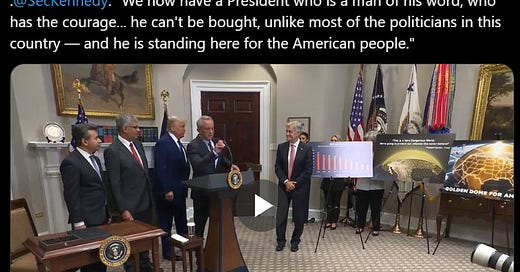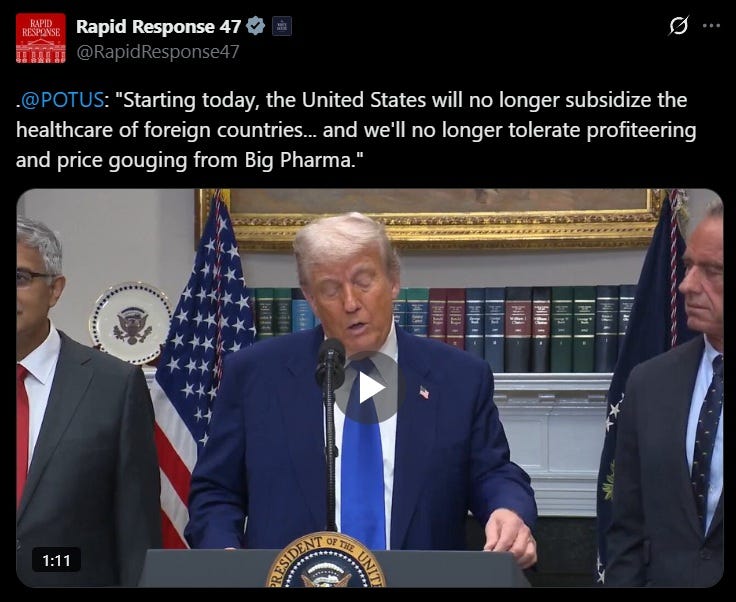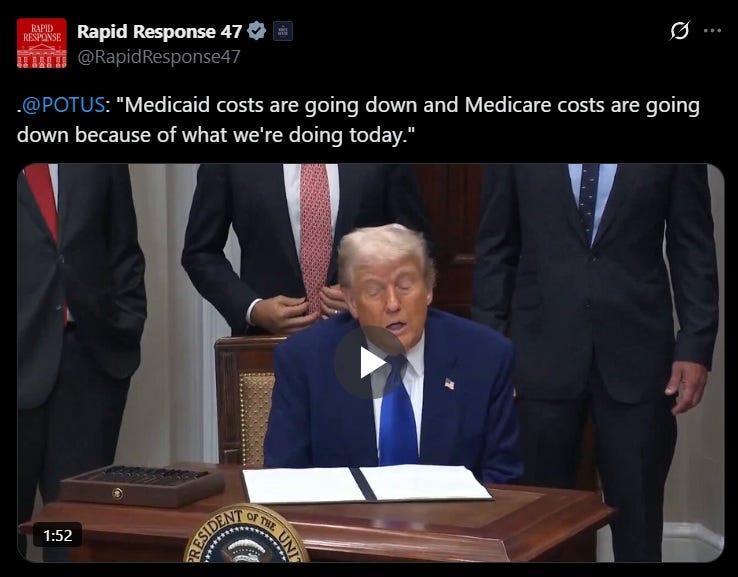Presidential candidates have been promising this action for decades. President Trump is the only one to have the courage to actually do it.
European nations have used laws to force drug companies to sell them drugs at below cost when research and development is factored in, as a result Americans have had to pay much higher drug prices to make up the difference. In short Americans have been subsidizing the prescription drugs for rich European countries. No more.
Grok Ai:
President Trump's executive order on pharmaceutical pricing, signed today, aims to lower drug costs by aligning U.S. prices with the lowest among high-income nations, targeting 30% to 80% reductions. It focuses on Medicare, offering discounts on insulin and epinephrine for low-income patients and standardizing cancer treatment payments. The order promotes generics and biosimilars and reforms PBM transparency. While it could reduce costs for millions, legal challenges and industry concerns about innovation may hinder implementation.
A Pharmacy Benefit Manager (PBM) is a third-party administrator that manages prescription drug benefits for health insurance plans, employers, and government programs. PBMs negotiate drug prices with manufacturers, create formularies (lists of covered drugs), process claims, and manage pharmacy networks.
Why PBMs Can Contribute to Excessive Prescription Drug Prices:
Lack of Transparency: PBMs often operate with opaque pricing models, including "spread pricing," where they charge insurers more than they pay pharmacies, pocketing the difference without clear disclosure.
Rebate System: PBMs negotiate rebates from drug manufacturers to include their drugs on formularies. However, they may prioritize high-cost drugs with larger rebates over cheaper alternatives, driving up overall costs for insurers and patients.
Formulary Control: By favoring certain drugs (often more expensive ones) on their formularies, PBMs can limit access to lower-cost generics or biosimilars, increasing patient out-of-pocket costs.
Market Consolidation: A few large PBMs dominate the market, reducing competition and giving them significant leverage to dictate terms to pharmacies, insurers, and manufacturers, which can inflate prices.
Clawbacks and Fees: PBMs may impose fees on pharmacies or retain portions of patient copays (clawbacks), indirectly raising costs for consumers and straining independent pharmacies.
These practices can lead to higher drug prices, limited patient choice, and increased financial burdens for both patients and the healthcare system. Critics argue that PBMs prioritize profits over affordability, though defenders claim they help negotiate discounts and manage costs effectively.
Here is the entire presser:
This is why the laws around Big Pharma must be changed to demand transparency:










👏🏻👏🏻👏🏻👏🏻👏🏻👏🏻👏🏻👏🏻
Sen. Tillis is a swamp creature - https://x.com/TheCalvinCooli1/status/1922316782859059596